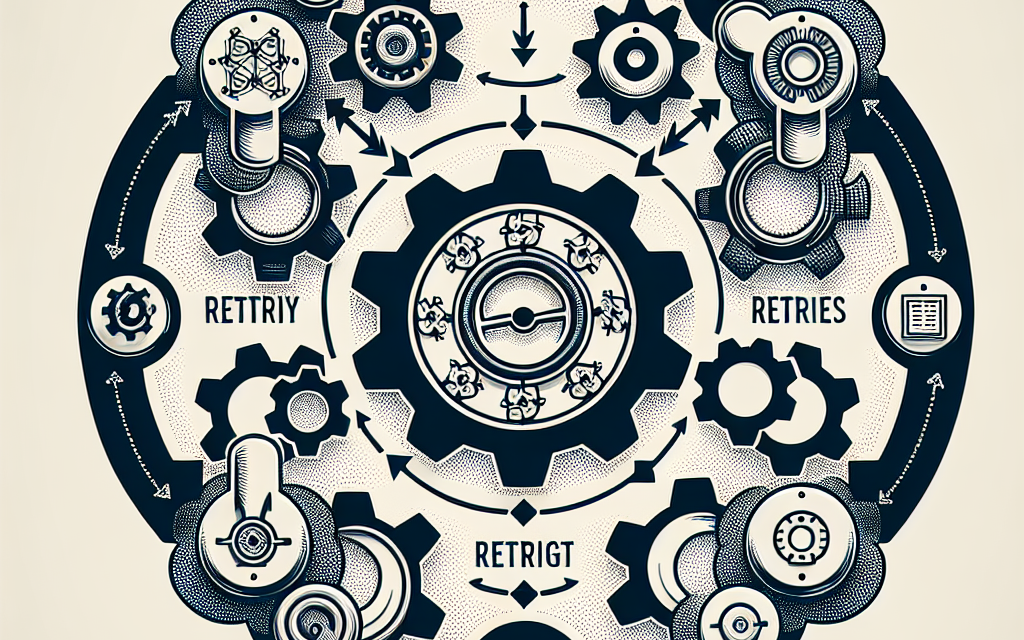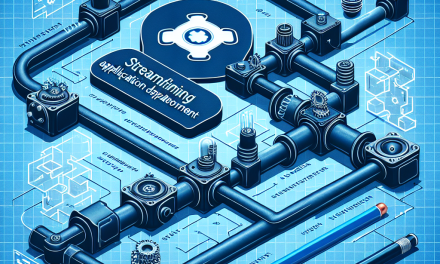Kubernetes has become the go-to orchestration platform for managing containerized applications at scale. One of the many features that Kubernetes provides to aid developers and operations teams is the concept of Jobs. This article dives deep into understanding Kubernetes Job retries, outlining best practices and strategies to ensure robust and reliable execution of batch processing workloads.
What is a Kubernetes Job?
A Kubernetes Job is a controller that ensures a specified number of pods successfully terminate their tasks. When you need to manage tasks that are finite in nature — such as batch processing, data migrations, or scheduled jobs — Kubernetes Jobs become essential.
The Importance of Job Retries
Failures are inevitable in distributed systems for reasons ranging from transient network issues to application-level errors. Kubernetes Job retries aim to improve fault tolerance by automatically re-running failed jobs up to a specified number of attempts. Here are key points explaining why Job retries are critical:
-
Automated Recovery: It diminishes manual intervention, allowing teams to focus on other tasks.
-
Increased Reliability: By retrying failed jobs, the likelihood of successful completion increases, enhancing overall system reliability.
-
Error Handling: Retries can provide greater insight into the underlying issues that caused job failures, helping in refining application stability.
Configuring Job Retries
To implement job retries effectively, you can leverage the backoffLimit field in the Job specification. This field specifies the number of retries allowed before considering the Job as failed. For example:
yaml
apiVersion: batch/v1
kind: Job
metadata:
name: example-job
spec:
backoffLimit: 5
template:
spec:
containers:
- name: example-container
image: example-image
restartPolicy: OnFailure
Key Parameters to Consider
-
backoffLimit: Defines the maximum number of retries. A value of
5means Kubernetes will attempt the job five additional times after the initial failure. -
activeDeadlineSeconds: This sets a duration in seconds that defines how long Kubernetes will try to run the Job before it is terminated. If a Job hasn’t completed within this window, it will be forcibly terminated.
-
completionMode: This helps manage the completion behavior. Options include
NonIndexedandIndexed, which can affect the retry strategy based on your application setup.
Best Practices for Job Retries
Implementing retries effectively involves not only configuring the parameters correctly but also adopting best practices. Here are some recommended strategies:
1. Idempotency
Design your Jobs to be idempotent. This means that running multiple instances of the same Job should not have adverse effects or result in inconsistent data states. It ensures that retries won’t cause side effects, allowing the system to maintain stability.
2. Monitoring and Alerts
Integrate monitoring solutions like Prometheus, Grafana, or similar tools. Set up alerts for failed Jobs and retry attempts to enable proactive responses to issues before they escalate.
3. Graceful Backoff Strategy
Instead of immediately retrying a Job, implement a backoff strategy that waits for a predetermined time before attempting the next retry. This can be done using a combination of settings in your application and Kubernetes tools.
4. Environment-Specific Configurations
Adjust backoffLimit and activeDeadlineSeconds based on the environment (development, staging, production) to ensure resources are optimally utilized without compromising reliability.
5. Thorough Testing
Conduct thorough testing for your Jobs, emulating various failure scenarios and understanding how retry mechanisms will function under different conditions.
6. Fail Fast Approach
If your Jobs are consistently failing, consider implementing a fail-fast approach. Rather than continuing with retries, analyze log outputs and errors to expedite troubleshooting.
Conclusion
Kubernetes Jobs, combined with an effective retry strategy, are key to building resilient applications. By understanding how to configure retries and implementing best practices, teams can ensure that even amid failures, their workloads can recover swiftly and efficiently.
As your organization grows, adapting your Kubernetes deployment with these insights will not only improve reliability but also enhance your operational productivity. Leverage the power of Kubernetes Jobs and create a seamless experience for managing batch operations and tasks—one retry at a time.
About WafaTech
WafaTech is dedicated to providing high-quality content and resources to help technology professionals navigate the complex landscape of modern tech solutions. From Kubernetes to DevOps best practices and beyond, we aim to be your trusted source for knowledge and insights.





